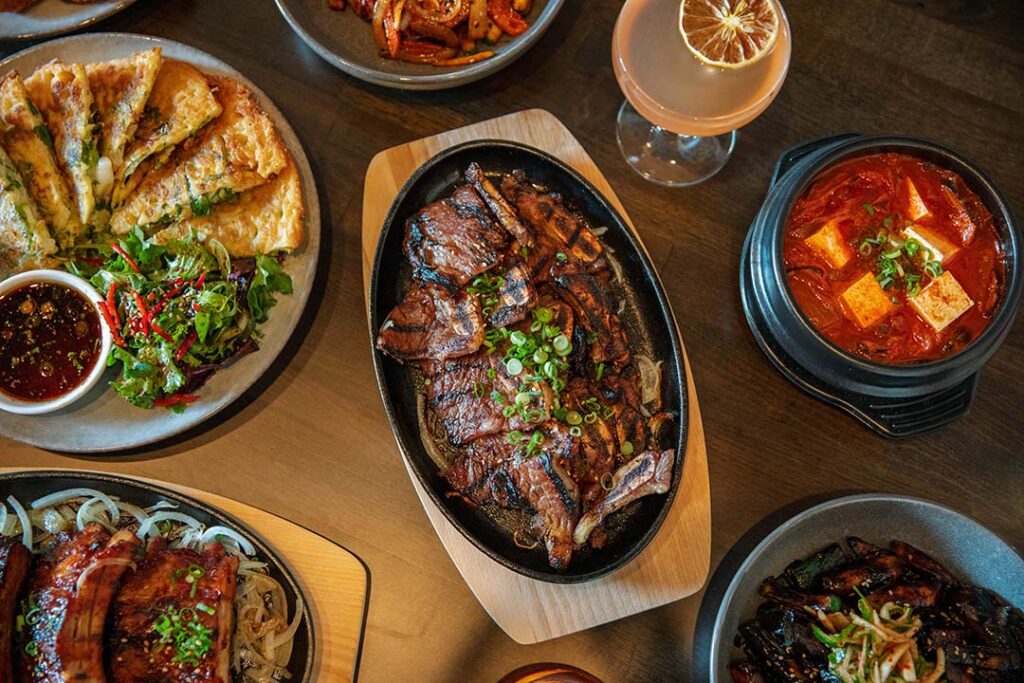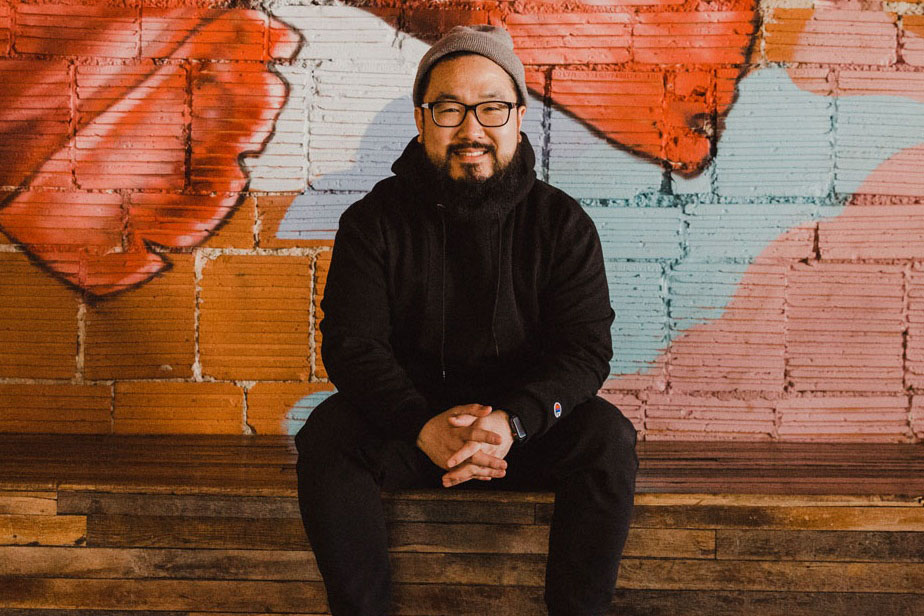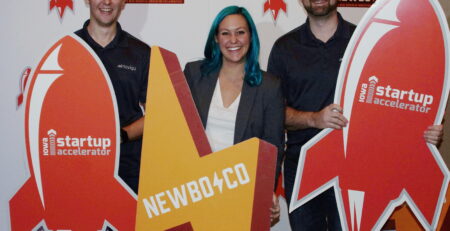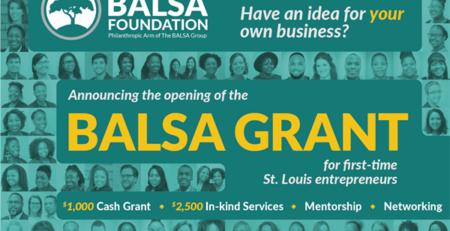How Crowdfunding Bolstered This Missouri Entrepreneur’s New Restaurant amid Unexpected Challenges
In the recipe for small business success, patience and determination are two key ingredients. But there’s also the business side to consider and the looming stat that 1 in 5 businesses fail in their first year. Keeyoung Kim, chef-owner of Chingu, a new restaurant and bar in the Westport neighborhood of Kansas City, Missouri, had to navigate a smorgasbord of obstacles to make sure he doesn’t become a statistic. He took an alternative approach to raising funds to open his eatery that serves up modern versions of Korean street food, BBQ and homestyle cooking.
“I always wanted to open a restaurant that recreated the fun, positive Korean drinking culture,” Keeyoung says. “That culture is represented in everything from the menus to the ambience. We’re pairing soju and beer with a variety of shareable dishes.”
Looking for help to turn your passion into profit and start a food business in Kansas City? Check out our blog post to help you get started.
In December 2022, Keeyoung and his business partner David Son opened the doors to the eatery. Although profits from their other business, Sura Eats, were the primary source of financing for Chingu, the restaurant was also funded by a successful crowdfunding campaign on Mainvest that raised $69,100 in capital from over 100 investors in 60 days. Keeyoung says they decided to try crowdfunding instead of seeking a traditional bank loan after discussing the strategy with other restaurant owners. Mainvest enables people to lend money to local, brick-and-mortar businesses by investing in securities. Each person who invested $100 in Chingu, which means “friend” in Korean, is guaranteed to receive a portion of the business’ revenue until they are repaid $150.
“In the restaurant industry, anything can go wrong,” Keeyoung says. “We wanted to make sure we had a little bit of cushion as a safety net. Through crowdfunding, we got financing from a group of engaged supporters who really got behind the success of the business. We didn’t think we’d get as much as we did, but we were pleasantly surprised. We’re super thankful to the community for rallying behind us.”
There are many ways to fund your business. Learn how to find loans, grants and equity funding for your Kansas City business—and who can help— in our in-depth funding guide.
Danielle Lehman, founder of Boxer & Mutt, a Kansas City-based agency focused on marketing strategy, content, design and web development, manages marketing for Chingu. Danielle ensured the crowdfunding campaign explained the restaurant’s story and vision through high-quality photos, strong branding and consistent communication with the public through social media.

“Marketing is not my strong suit,” Keeyoung says. “I don’t like talking about myself or promoting my business. My biggest advice for entrepreneurs is to make room in your budget to hire people who can do the things you aren’t good at so you can focus on your strengths and not stretch yourself too thin. If you try to do everything yourself, it’s not going to be as effective.”
Even with funding secured, the Chingu team still had challenges to overcome. After signing the lease on their building in February 2022, they had to wait several months for the city of Kansas City, Missouri, to approve their construction permits. This took Keeyoung by surprise as the building needed minimal construction because it already had restaurant infrastructure.
“If I’d known how long it would take to get our permits, get construction going, get inspections and actually open the doors, we probably would have tried to raise another $20,000 through crowdfunding,” he says. “It was really difficult to move forward as a small business while we were waiting for months and financial resources were going down the drain. It was quite the curveball.”
Despite the obstacles, Keeyoung, who moved to Kansas City from Rockville, Maryland in 2016, says Kansas City is a great place to be an entrepreneur.
“The barriers to entry to opening a business in Kansas City are way less than on the East Coast or in Chicago where I also used to live,” Keeyoung says. “The lower costs of real estate, lower costs of goods, and access to a tight knit food community where I can glean wisdom helped us gain momentum.”
After graduating college with a degree in economics, working in the hospitality industry and then serving as a pastor for his childhood church, Keeyoung’s entrepreneurial journey started in 2016 when he launched a Korean comfort food pop-up called Sura Eats.
“We were able to get Sura Eats off the ground because a gentleman who used to run an amazing sandwich shop in City Market opened up his space for us to do pop-ups,” Keeyoung says. “He really helped us get the word out.”
Ready to launch or grow your business but don’t know where to start? Click here to get your free Personal Action Plan. In 24 hours, you’ll have a customized checklist of things to do and experts to meet to move your Kansas City business or business idea forward.
After hosting more than 10 successful events that attracted hundreds of customers, Keeyoung added private events and catering to his offerings. In 2018, he set up a permanent location inside Parlor food hall in the Crossroads Arts District. He opened a noodle bar in the same food hall in 2020 but closed it in January 2022 to focus on Sura Eats and Chingu. Keeyoung says taking his time to build up to a full-service restaurant allowed him to refine his menus, cultivate a customer base and see the importance of financial sustainability to achieve long-term business success.
“A lot of chefs are really focused on the creative aspect of a restaurant, but you have to look at the numbers,” Keeyoung says. “In the first few months of opening a restaurant all your costs are going to be high. You have to fine tune your numbers and get the costs down to ensure longevity. You can have the best food and the best customer reaction and reviews, but if you don’t get to certain percentages for your cost of goods and labor it’s not going to work out.”
In addition to gaining knowledge in the mechanics of business, Keeyoung has prioritized developing himself as a leader. With competitive pay and an employee-centric culture, he’s been able to retain many of the same people who started working with him seven years ago.
“I decided to become an entrepreneur to create spaces for my staff and the community where people feel safe, respected and honored,” Keeyoung says. “In such a transient industry where turnover rates are super high, I wanted to create a place where people could stay for a long time and feel like they were part of a family. You have to treat your employees well. They could be elsewhere, but they chose to work with you day in and day out. There’s something special about that.”
Through navigating the ups and downs of growing his food businesses from pop-ups to full-service, Keeyoung has learned humility is essential for entrepreneurship.
“Don’t be afraid to ask for help,” he says. “I relied on my friends and fellow entrepreneurs, who have been doing this a lot longer than me, for mentorship, advice and hard truths,” he says. “I asked tons of questions and watched their processes. It was a lot of trial and error.”
Photos by Alyssa Broadus










